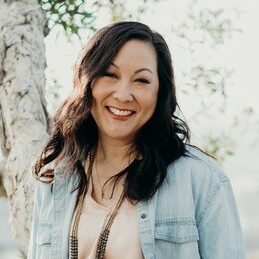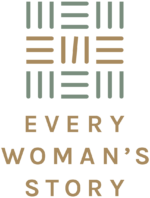The God Who Sees Us
My Story with Community, Workplace & Church
Scripture Connection
Genesis 16:1-16
Out of habit, I scan the shelves at the toy store, in the bookstore, and up and down the stacks in the library. I search for actors in movies and on television. I look at conference brochures and magazine covers and struggle to find faces that look like mine. On the rare occasion when I do, I hold my head a little higher and walk with a more confident step. Seeing someone who looks like me helps me feel seen.
I grew up in a culturally Buddhist household. As one of a handful of Asian Americans in my graduating class of 600 in Colorado, the lack of representation and spiritual guidance caused me to swing between extremes when it came to my identity. I would go from feeling invisible to overcompensating through striving and seeking validation through performance.
I would go from feeling invisible to overcompensating through striving and seeking validation through performance.
On the one hand, based on how I looked, I knew deep inside that I would never be the Homecoming Queen or date any of the popular boys. I remember awkwardly standing along the wall during the co-ed roller-skating parties. The boys never picked me to hold hands and skate to the love songs blaring over the speakers. I didn’t feel desirable, noticed, or wanted.

On the other hand, I had leadership skills and kept being elected president—of clubs, the junior class, even the whole school. I began to find worth in my titles and awards. As much as I enjoyed leading, I recognized that all the positions and accolades could not fill the growing spiritual void in my life.
God lovingly and graciously drew me to himself, and I became a Christian midway through high school.
As I began to read the Bible, I felt drawn to the women and their encounters with God. I connected with Hagar, an enslaved Egyptian woman who was considered the property of people who never referred to her by name. I imagined she felt invisible.
But when she ran away in Genesis 16, God saw her and went looking for her, calling her by name. She then gave God a name, El Roi, which translates to “the God who sees me.”
Isn’t that breathtaking? You and I are known by name and always under God’s loving, watchful eye. “For the eyes of the Lord search the whole earth in order to strengthen those whose hearts are fully committed to him” (2 Chronicles 16:9b).
I also found camaraderie with some of the women leaders in the Bible—Deborah, Lydia, Abigail, and Priscilla, to name a few. God tapped these women and their leadership gifts to bring about incredible change and benefit many in the community.
She then gave God a name, El Roi, which translates to “the God who sees me.”
The apostle Paul understood the importance of knowing our identity in Christ. Notice in several of Paul’s letters how he spends the first half grounding his readers in God’s unchanging character. His focus is on God, what he has done, and who we are in Christ. Our service and conduct flow out of knowing God and being grounded in the truth of what he has done.
The second half of these letters focuses on how we are to live. Our identity informs our service. Often, though, Christians flip the order and focus on behavior and performance as the way to be seen and accepted by God rather than as an outflow of our identity in Christ.

For we are God’s masterpiece. He has created us anew in Christ Jesus, so we can do the good things he planned for us long ago. Ephesians 2:10, NLT
God didn’t make a mistake creating us just as we are. God knit us together in our mother’s womb with strengths and gifts. These influences and talents, like the family we grew up in, the color of our eyes, and the places we were born, are all outside our control. But God picked out the exact places we would live (Acts 17:26). He placed you and me here on earth during this time in history and prepared good works for us to do (Ephesians 2:10). Nothing is haphazard.
A deep security is found in being known, loved, and seen apart from performance and appearance. An identity grounded in the Truth helps us operate in our gifts and strengths with freedom, generosity, and joy.
Having struggled with feeling unseen has expanded my heart to notice others who may also feel overlooked. By noticing those who may feel invisible—those with physical disabilities, single moms, widows, divorcees, those from different socioeconomic backgrounds, and other underrepresented ethnic groups—I can acknowledge and honor their presence. I have found over many decades of walking with God that he often uses the very places where we experience pain to build connection with others. With our identity grounded in Christ, let us seek to love those around us by taking time to enter each other’s stories.
reflect
Can you recall particular times when you felt unseen, unnoticed—invisible? What effect did those experiences have on you?
How does knowing that God goes by the name El Roi—“the God who sees me”—help you reimagine those experiences?
imagine
Think about a time when you felt invisible; then imagine that “the God who sees me” is sitting next to you. What do you feel? How would you describe his presence?
Do you know others who are struggling with the sense of being invisible, who are feeling insignificant? How might God use you to demonstrate his presence with them today?

vivian Mabuni
is a national speaker, author of Open Hands, Willing Heart, and podcast host of Someday Is Here for AAPI Christians, with over thirty years of ministry experience.

